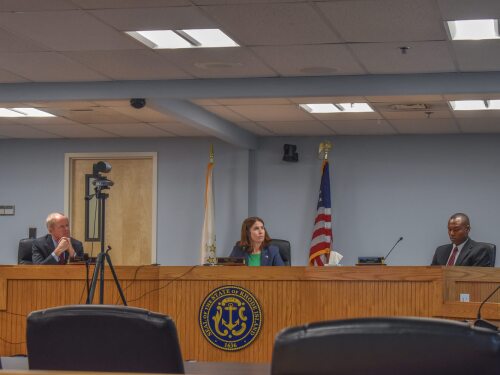Brown University will not divest from 10 companies that student activists said facilitated “the Israeli occupation of Palestinian territory.”
The Corporation of Brown University, the university’s governing body, voted Tuesday to support the recommendation of the Advisory Committee on University Resources Management (ACURM) against divestment, according to a press release issued on Wednesday.
ACURM found that “Brown has no direct investments in any of the companies targeted for divestment and that any indirect exposure for Brown in these companies is so small that it could not be directly responsible for social harm,” University Chancellor Brian T. Moynihan and President Christina H. Paxson wrote in an open letter explaining the corporation’s vote.
This story was reported by The Public’s Radio. You can read the entire story here.







